 |
| November 18, 2020 |
Dear Reader,
Smell loss is so common in people with COVID-19 that some researchers have recommended its use as a diagnostic test because it may be a more reliable marker than fever. Our lead story looks into possible explanations for this mysterious symptom. Next, signs of the gas phosphine in Venus's atmosphere have faded—but they're still there, according to a new data analysis. Also, extreme weather and climate-linked disasters have killed 410,000 people since 2010. More frequent and severe catastrophes threaten to exacerbate humanitarian crises and lead to economic hardship, according to the World Disasters Report 2020. |
| | Sunya Bhutta, Senior Editor, Audience Engagement
@sunyaaa | |
 |
| |
| |
| |
| |
| |
| |
FROM THE STORE
 | | | |
| |
FROM THE ARCHIVE
 | | | |
| |
LATEST ISSUES
 |
| |
| Questions? Comments?  | |
| Download the Scientific American App |
| |
| |







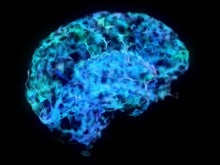
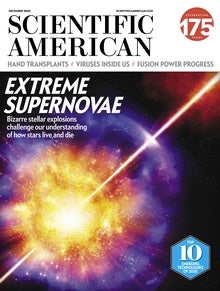



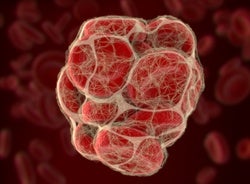
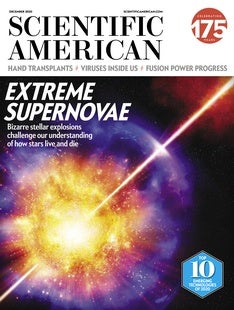

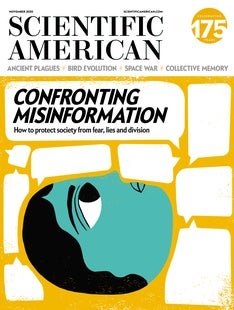

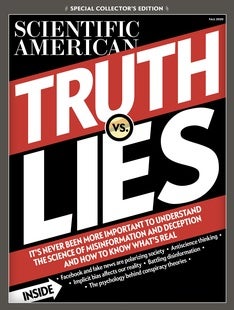



Comments
Post a Comment